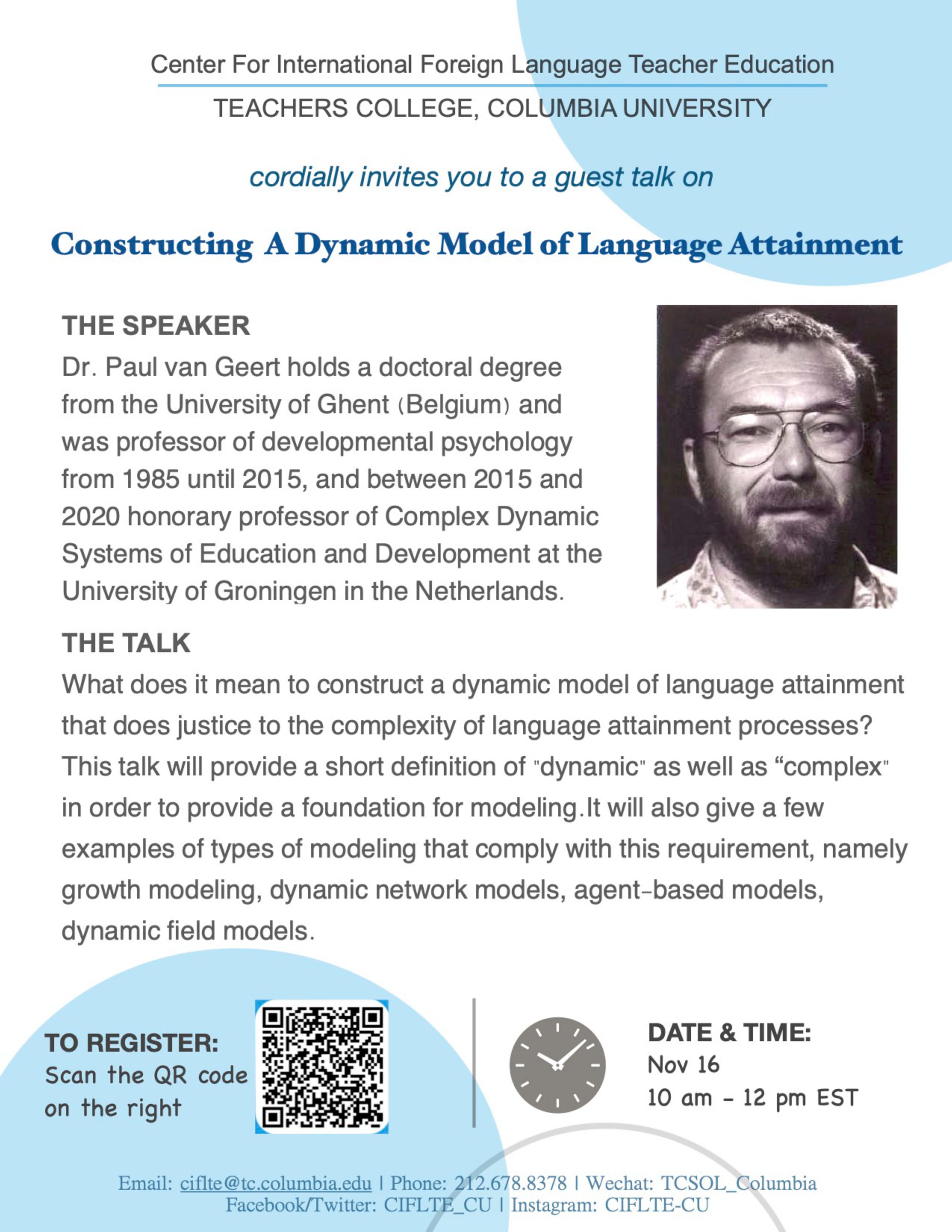CIFLTE Guest Talk: Constructing a Dynamic Model of Language Attainment
Speaker: Dr. Paul van Geert
Date and Time: November 16, 2021, 10:00am - 12:00pm (EST)
Location: Online via Zoom (register to receive meeting ID)
To register: https://forms.gle/Q9q6Ne4yU3A112yC7
Guest Talk Abstract:
What does it mean to construct a dynamic model of language attainment that does justice to the complexity of language attainment processes? I will provide a short definition of "dynamic" as well as "complex" (which is not the same as complicated), in order to provide a foundation for modeling. A dynamic model is a formal, deductive way of describing how one state of a system is transformed into another state of the system over the course of time. A state is any point or region in a state space, and a state space is simply a combination of the variables that are used to describe a system, e.g. a particular L2 learner. It is a descriptive simplification of the real, complex system, which is chosen in such a way that it conserves or implies fundamental properties of that real complex system. I will give a few examples of types of modeling that comply with this requirement (simplification conserving complexity), namely growth modeling, dynamic network models, agent-based models, dynamic field models, just to provide an idea of which modeling methods are possible, and what those models can teach the modeler and language attainment researcher.
Bio:
Paul van Geert (1950) holds a doctoral degree from the University of Ghent (Belgium) and was professor of developmental psychology from 1985 until 2015, and between 2015 and 2020 honorary professor of Complex Dynamic Systems of Education and Development at the University of Groningen in the Netherlands. He has had a pioneering role in the application of dynamic systems and complexity theory to a broad range of developmental areas, including early language development and second language acquisition; cognitive development; learning- teaching processes; and social development including social interaction and identity. His main aim is to better understand the general nature of developmental dynamics, i.e. nature of the mechanism(s) that drive and shape a developmental process in an individual, as the individual, given his or her biological properties and potentialities interacts with his or her actively explored environment. He has held visiting professorships at the Universities of Torino (Italy), Paris V and Reims (France), Trondheim (Norway) and Harvard University (Mind-Brain- Education program) and has been a fellow at the Center for Advanced Studies in the Behavioral Sciences at Stanford University. Paul van Geert is also an artist painter who paints life-size free-standing portraits of people in his environment (www.paulvangeert.nl). His new book, with Dr Naomi de Ruiter-Wilcox, Toward a Process Approach in Psychology: Stepping into Heraclitus’ River, published by Cambridge University Press, will appear at the end of 2021.
To request disability-related accommodations, contact OASID at oasid@tc.edu, (212) 678-3689, as early as possible.
